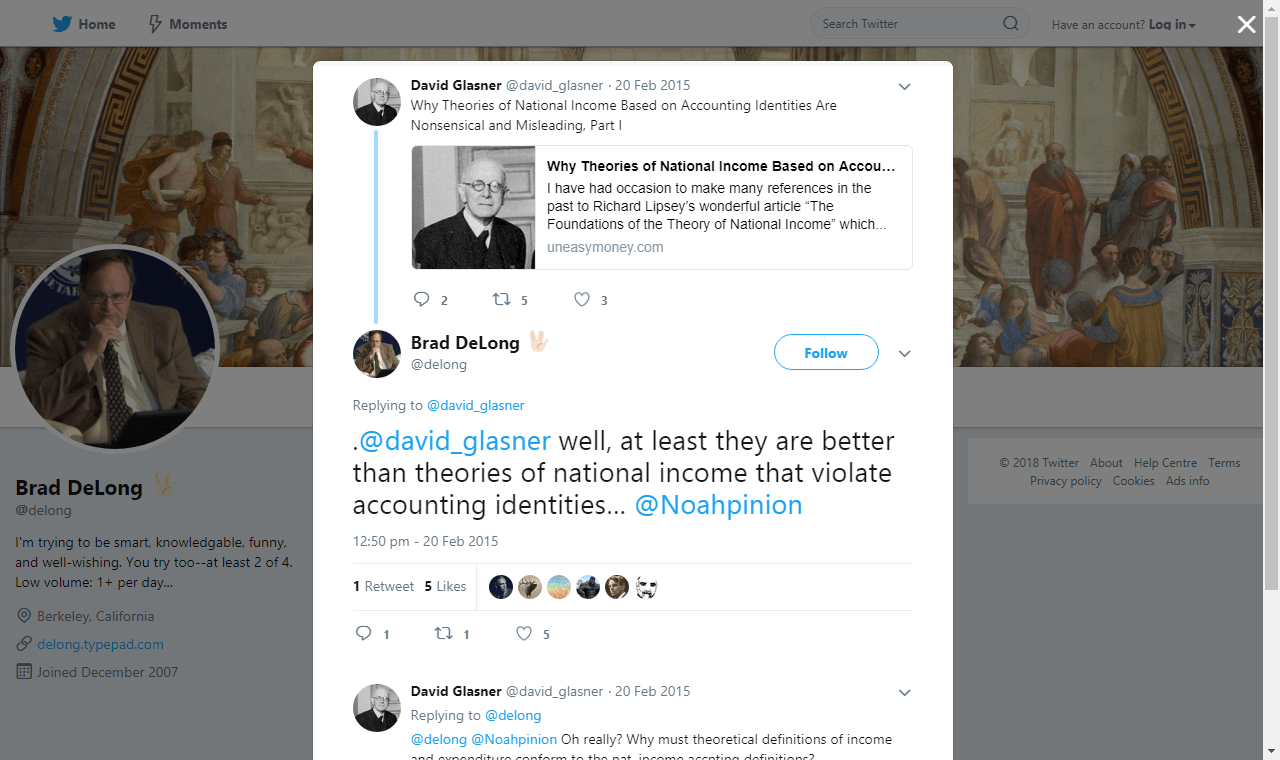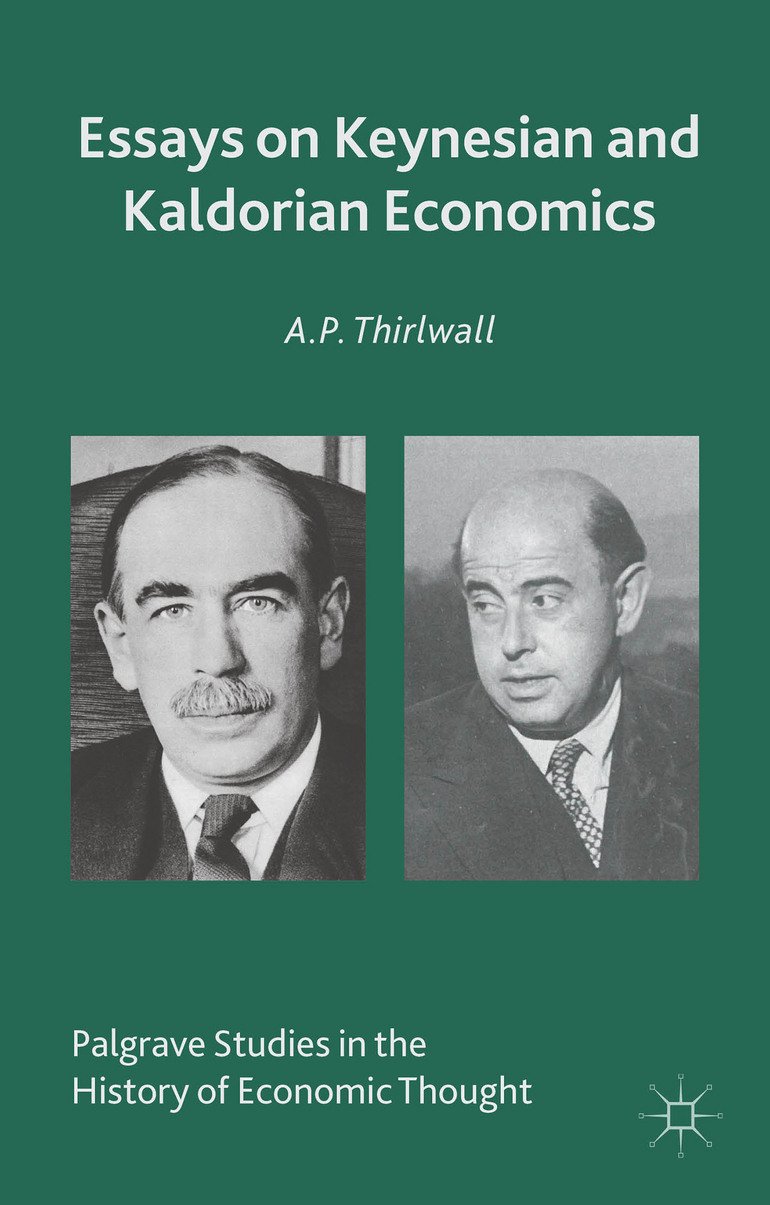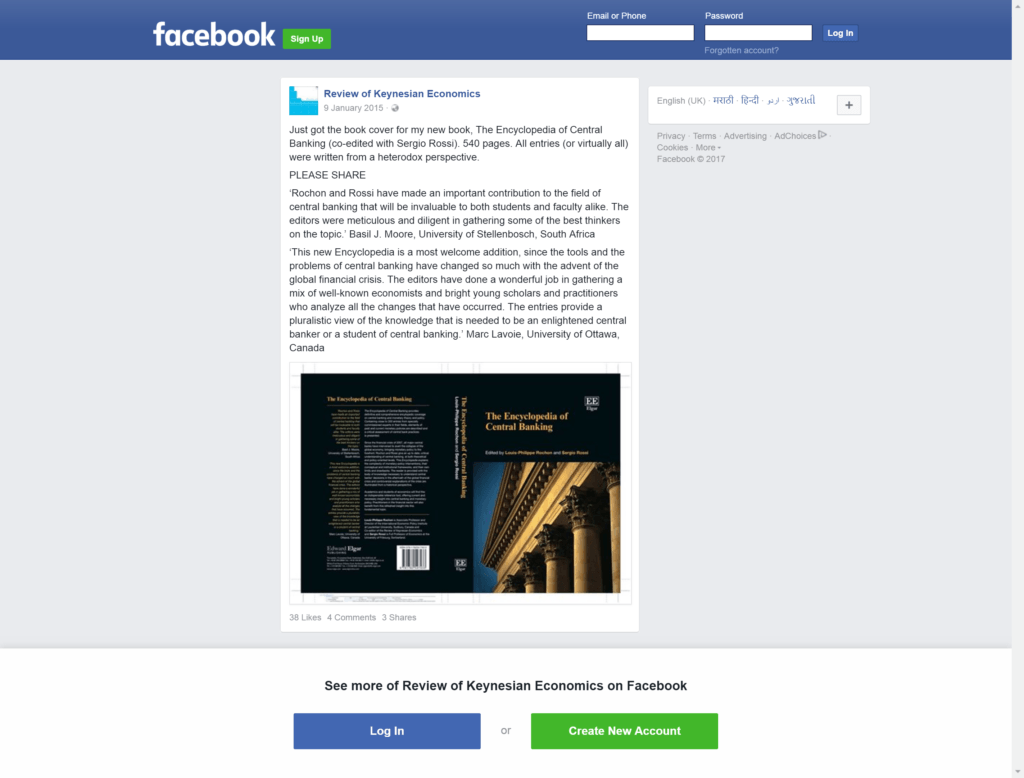Ben Bernanke has a new blog at Brookings.
In his second post, Why are interest rates so low?, Bernanke “explains the rationale behind the Federal Reserve’s continued policies”. We should be thankful to Bernanke for his leadership qualities to have kept interest rates low to help the world economy recover from a crisis. The latest post however ends up just stating the standard neoclassical economics story: a hugely inaccurate way of looking at the world. Keynes himself debunked many such notions.
First he starts off with the notion of the Wicksellian interest rate.
To understand why this is so [“Why are interest rates so low?”], it helps to introduce the concept of the equilibrium real interest rate (sometimes called the Wicksellian interest rate, after the late-nineteenth- and early twentieth-century Swedish economist Knut Wicksell). The equilibrium interest rate is the real interest rate consistent with full employment of labor and capital resources, perhaps after some period of adjustment. Many factors affect the equilibrium rate, which can and does change over time. In a rapidly growing, dynamic economy, we would expect the equilibrium interest rate to be high, all else equal, reflecting the high prospective return on capital investments.
Full employment in the United States? When did this happen? Keynes himself rejected this (see here) (quote h/t Lars Syll).
Keynes said:
In my Treatise on Money I defined what purported to be a unique rate of interest, which I called the natural rate of interest—namely, the rate of interest which, in the terminology of my Treatise, preserved equality between the rate of saving (as there defined) and the rate of investment. I believed this to be a development and clarification of Wicksell’s ‘natural rate of interest’, which was, according to him, the rate which would preserve the stability of some, not quite clearly specified, price-level.
I had, however, overlooked the fact that in any given society there is, on this definition, a different natural rate of interest for each hypothetical level of employment. And, similarly, for every rate of interest there is a level of employment for which that rate is the ‘natural’ rate, in the sense that the system will be in equilibrium with that rate of interest and that level of employment. Thus it was a mistake to speak of the natural rate of interest or to suggest that the above definition would yield a unique value for the rate of interest irrespective of the level of employment. I had not then understood that, in certain conditions, the system could be in equilibrium with less than full employment.
I am now no longer of the opinion that the [Wicksellian] concept of a ‘natural’ rate of interest, which previously seemed to me a most promising idea, has anything very useful or significant to contribute to our analysis. It is merely the rate of interest which will preserve the status quo; and, in general, we have no predominant interest in the status quo as such.
Ben Bernanke then says:
Large deficits will tend to increase the equilibrium real rate (again, all else equal), because government borrowing diverts savings away from private investment.
This again confuses the direction of causality from saving to investment among other things. Bernanke himself is a witness to the fact that large US government deficits didn’t have such effects. Economists such as Paul Krugman have an explanation for this, claiming this is untrue when the economy is in a “liquidity trap” but think this is the case. A large deficit has the private sector net lending as the mirror image and there’s no reason for interest rates to necessarily rise because of large deficits. Ben Bernanke is simply repeating economists’ favourite “crowding out” argument.
Ben Shalom Bernanke. Huge disappointment.




